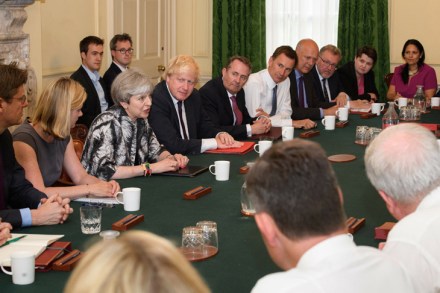The Spectator’s Notes | 15 June 2017
Before knowing the result of the election, I composed my Chairman’s message in the newsletter of the Rectory Society. In it, I noted that Theresa May was the third prime minister in a row to have been brought up in a parsonage house. The first was Gordon Brown, son of the Scottish manse. The second was David Cameron, inhabitant of an old rectory owned by his stockbroker father. And now there was Mrs May, only child of a High Anglican vicar in Oxfordshire. ‘Whatever our political views,’ I went on, ‘I feel we [in the Society] should be proud of the fact that the buildings we love continue to produce





















